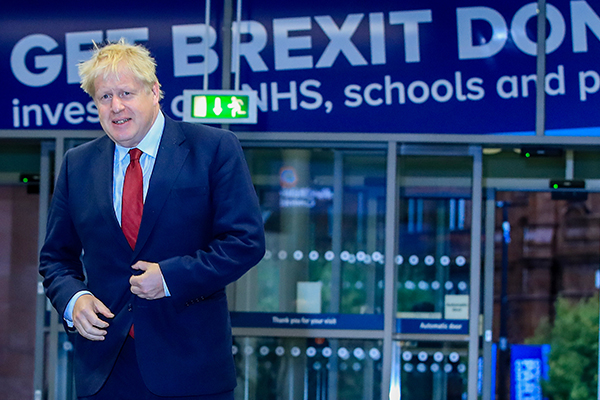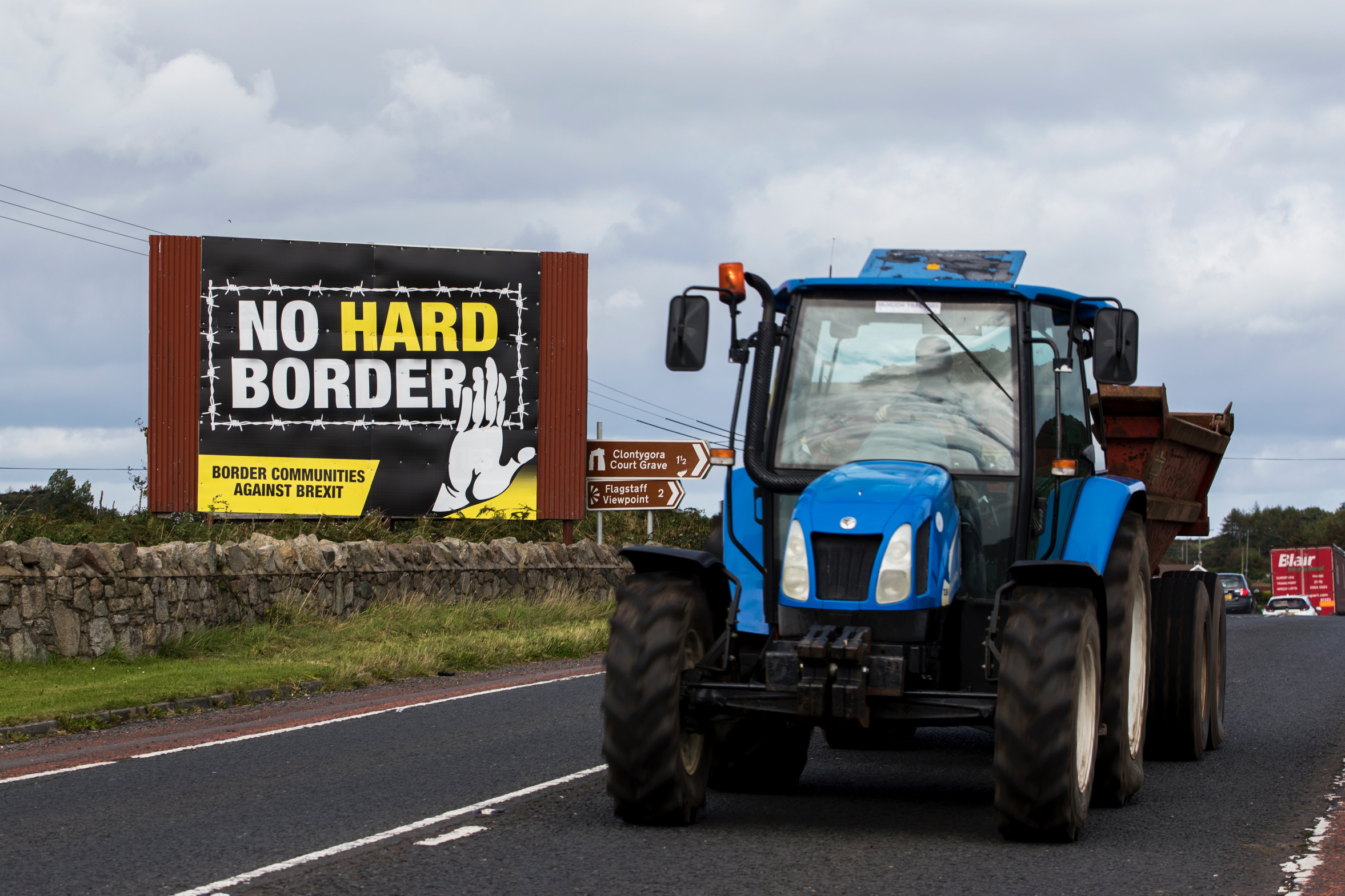Why not begin the process of digesting Boris Johnson's new Brexit package, which he is in the process of submitting to the European Union, by asking a simple question: what is an international border? Unless we can agree what we mean by that concept, we won't be able to judge whether he has succeeded in making the line on the ground dividing Northern Ireland from the Republic to the south, truly borderless.
We have the example of a border between two nations very near at hand, between England and Scotland. But it is not an international border. True, if you smack a child one yard over the line in to Scottish territory, you will soon find yourself liable to arrest. Deliver the same smack two metres to the south, and you will be left alone – because there are two different criminal justice systems either side of the border, two different laws on the mistreatment of children.
So jurisdiction is not a valid test. But there is another definition. What characterises that England/Scotland border, above all, is that you need nobody's permission to cross it. Needing permission is what defines a border as international. You only have to think of the immigration and customs checks at Heathrow to see what a real one looks like.
Until now the border between Northern Ireland and the Republic has been, in principle and in practice, much more like the border between England and Scotland than the one at Heathrow. There is a long-standing pre-Brexit agreement in Ireland that individual persons may cross between north and south quite freely, though until Britain and Ireland joined the European Union, such travellers might have faced questions about any goods they were carrying. If they were conveying commercial goods for sale, they could have been turned back if they didn't meet the customs requirements, or pay the taxes due.
Once both sides were in the EU, however, and especially once the Provincial IRA laid down its arms under the Good Friday Agreement, checks on the border were no longer deemed necessary and all appearances of a dividing line between north and south were made to disappear. Nobody needed permission to cross, nobody would try to stop them, and they could take with them whatever they wished, including commercial goods.
So it was quite possible to imagine that this was no longer an international border. Hence the closest comparison was with the border between England and Scotland, not with the border in Heathrow. And that perception was one of the key elements of the Good Friday Agreement. It respected the right of a Northern Ireland resident to identify himself or herself as either Irish or British. Both citizenship options were officially recognised, along with passports if required. If one could work out where exactly it was on the ground, such a person could stand with one foot on either side of the border and feel equally at home in each.
But not if this is an international border. There a person needs permission both to cross in person and to take their goods and chattels with them (including goods for commercial sale). And this is where Mr Johnson's proposals fall down. Manufactured goods and agricultural products coming from Northern Ireland will, under his plan, continue to be bound by the rules of the single market. So they will not need inspection to be allowed to cross the border. No permission will be necessary. But they will need to comply with the EU's rules on customs and excise duty, which means paying any tariffs (in effect, import taxes) which may be due. The proposal is that this be dealt with by paperwork, just as VAT payments now are, rather than by physical checks at the border. The process does require that some parts of the customs compliance procedures will take place inside the Republic of Ireland, and can only be enforced by the Irish authorities.
If firms sending goods north and south don't comply with the requirements of the customs bureaucracy, however, they will not have permission to cross the border. It will have become an international border again, where, technically, they could be stopped and turned back. And that drives a coach and horses through Mr Johnson's claim that he is honouring the Good Friday Agreement. The sense of Ireland being one country with two jurisdictions will have given way to the sense of it as two separate countries again. And it is not at all surprising that this pleases the Democratic Unionist Party, which strongly dislikes the idea of Ireland being treated as one entity and which opposed the Good Friday Agreement at its inception for that reason.
Having Northern Ireland stay in the single market for regulatory purposes – for instance to guarantee that goods manufactured there meet the technical requirements of the EU's rules regarding customer safety – still needs an inspection regime for goods crossing into Ireland, north or south, to and from the British mainland. That is effectively a border in the Irish Sea, which may be partly supervised on the ferry crossing itself, partly at British ports of arrival and departure.
So the Johnson proposals require two different kinds of official enforcement, two borders, one for single market regulations and one for customs. Quite apart from the effect it has on the careful balance enshrined in the Good Friday Agreement, which centres on issues of identity, this defies common sense from an administrative point of view. Is there one good reason for wanting customs checks between north and south? What public benefit is being served, and what harm is being prevented, by such a measure? None. Why not do both single market regulatory checks and customs checks at the same time and place, and confine them to goods crossing the Irish Sea? It is entirely feasible, and will not depend on inventing complex electronic monitoring to keep track of goods moving around Ireland.
The other major flaw in his proposals is that they are dependent on the consent of the Northern Ireland Assembly and Executive at Stormont. It has not met for a thousand days and shows no sign of doing so soon. Mr Johnson is insistent that his plan will only proceed if it has the democratic consent of the people of Northern Ireland. But there is an obvious alternative to consent from Stormont – to consult the people by a referendum.
If he proposed moving customs checks to the Irish Sea, it is likely the DUP will object and Stormont will withhold its consent. It is even more likely, however, that a referendum on the issue would say Yes. The majority in Northern Ireland voted to stay in the EU in 2016, despite the DUP's opposition.
There is just one snag, which people can make as much or as little of as they like. By the criteria here outlined, there will still be an international border – a line you need permission to cross – but it will not be in the island of Ireland. It will be on the Irish Sea or at ports on the British mainland. So the question is: how much does that matter?



 Loading ...
Loading ...
What do you think?
You can post as a subscriber user ...
User comments (0)